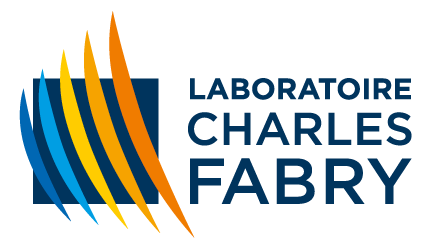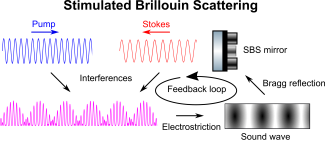Thesis defense of Raphaël HUMBLOT
- Soutenance de Thèse
- Evénement scientifique
Thesis defense of Raphaël HUMBLOT, PhD student in the Lasers group of the Laboratoire Charles Fabry, on 27 February 2025 at 02:30pm in the Auditorium of the Institut d'Optique Graduate School in Palaiseau, on the topic: "Improvement of the spatial quality of high energy lasers at high-repetition rate: development of stimulated Brillouin scattering phase conjugate mirrors for the correction of wavefront aberrations."
Abstract: "High-energy lasers are important tools in a large variety of scientific and industrial domains such as plasma physics, machining or energy sources for secondary lasers. Currently, the main drawback of such systems is their low repetition rate, limiting the number of shots provided. This limit rises from thermal energy accumulation shot after shot inside the amplifiers of the lasers systems during operation, generating laser beam wavefront distortion up to complete laser dysfunction. In this thesis, a collaboration between Amplitude laser, an industrial laser manufacturer, Laboratoire Charles Fabry, and Laboratoire pour l'Utilisation des Lasers Intenses (LULI), aim to develop a component capable of correcting those wavefront distortions. This component, called phase conjugated mirrors, uses a nonlinear effect called stimulated Brillouin scattering to invert the wavefront and allow self-correction of the laser wavefront aberration in a double pass amplifying scheme. In this work, the existing theoretical framework of the nonlinear effect is used for the development of numerical models simulating the reflection. Those models are applied to the design of experimental phase conjugate mirrors whose properties are investigated. The thesis places an emphasis on the fidelity of the mirror, that is to say, its capacity to conserve the spatial and temporal pulse properties while properly inverting the wavefront. In particular, the optical configuration used, and the input laser parameters are shown to have a large influence on the reflection quality. The capacity to be applied to arbitrary temporal shapes is demonstrated for the first time and paves the way to the usage of phase conjugate mirrors for broader applications requiring unusual temporal shapes. The phase conjugate mirror stability and reliability are considered for the usage in industrial commercial laser systems and no particular erratic behavior is identified. The limits of the components are investigated up to unprecedented input energy and wavefront aberrations levels making this component compatible for laser sources up to the kilojoule energy level."

